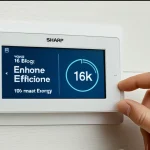Fulfilling UK Pet Import Requirements: Step-by-Step
Ensuring compliance with UK pet import requirements is crucial for a hassle-free pet relocation to the UK. The first step involves microchipping your pet according to strict UK standards. This is not just a routine procedure; the microchip must meet specific technical specifications so that it can be scanned easily upon entry.
Next, pets must be vaccinated against rabies, with the vaccination administered after microchipping. The vaccination’s validity depends on an appropriate waiting period, typically 21 days, before travel is allowed. Along with vaccinations, a veterinarian must issue a health certificate confirming the pet’s fitness for travel and absence of contagious diseases.
Also to read : How do UK pet ownership trends compare globally?
Proper documentation is key. This includes passports or official animal health certificates, and in some cases, specific permits depending on the pet’s species and origin country. Failure to meet these pet travel regulations can result in quarantine or denial of entry.
Understanding and meticulously following these steps will ease your pet’s entry into the UK and avoid complications. By meeting microchipping, vaccination, and paperwork requirements, you ensure compliance with all necessary UK pet import requirements.
In parallel : What Are the Essential Questions to Ask Before Adopting a Pet in the UK?
Making Travel Arrangements Safe and Comfortable for Pets
When planning pet travel preparation, selecting pet-friendly airlines UK is vital to ensure your companion’s comfort and safety during the journey. Only airlines approved for pet transport under UK pet import requirements should be used, as they adhere to strict regulations regarding crate dimensions, ventilation, and care standards.
Crate training your pet well before departure is essential. Acclimating them to the travel crate reduces stress and helps them associate it with a safe space. Gradually introducing the crate and rewarding calm behaviour can make the transition smoother, which is important for any pet relocation to UK.
Packing must include essential items such as water bowls, familiar toys, and comfort blankets, all of which help soothe pets during transit. Remember to check the airline’s policies for allowable items in the crate and ensure the crate is properly labeled according to pet travel regulations. These careful preparations contribute significantly to reducing anxiety and making your pet’s journey as stress-free as possible.
Fulfilling UK Pet Import Requirements: Step-by-Step
Understanding and meeting UK pet import requirements involves a precise sequence of steps to ensure your pet’s smooth entry. First, the pet must be microchipped with a device that complies with UK standards. This microchip is essential for identification and must be readable by scanners used at UK ports.
Next, your pet requires a valid rabies vaccination administered after microchipping. Pet travel regulations stipulate that a waiting period of at least 21 days follows this vaccination before travel can occur. This rule prevents risks associated with rabies transmission.
A certified veterinarian must also issue a health certificate confirming your pet is free from contagious diseases and fit for travel. This certificate is part of the mandatory documentation when importing pets into the UK.
Collecting and preparing all necessary documents is critical. These include the pet passport or official animal health certificates and, depending on origin and species, additional permits approved under UK pet travel regulations. Checking these specific requirements well in advance avoids quarantine or entry denial.
By carefully following these key steps—microchipping, vaccination, and thorough documentation preparation—you comply fully with UK pet import requirements and help ensure a seamless pet relocation to UK.
Fulfilling UK Pet Import Requirements: Step-by-Step
Meeting UK pet import requirements starts with microchipping your pet using a compatible device meeting UK standards. This ensures quick identification during entry checks, avoiding delays and complications.
Vaccination rules specify that pets must have a valid rabies vaccination administered after microchipping. The vaccination’s effectiveness is verified after a mandatory waiting period of at least 21 days. This step is critical for compliance with pet travel regulations and safeguards public health.
A detailed veterinary health certificate is required to certify that the pet is free from diseases and fit for travel. The certificate must be current and issued shortly before travel to meet UK regulations.
Preparing documentation involves more than just the passport or health certificate. Depending on the pet’s origin or species, specific permits may be needed. These permits align with strict UK pet import regulations designed to ensure safety and traceability.
Thoroughly verifying this paperwork ahead of time prevents quarantine or rejection at the border, streamlining pet relocation to the UK. Focused adherence to microchipping, vaccinations, and documentation forms the foundation of successful pet importation under UK law.
Fulfilling UK Pet Import Requirements: Step-by-Step
Successfully navigating UK pet import requirements hinges on a clear sequence of actions, starting with microchipping. The microchip must comply with UK standards, ensuring it is readable by scanners at entry points—a non-negotiable step to verify pet identity promptly without delays.
Once microchipped, pets must receive a rabies vaccination that aligns with UK pet travel regulations. Crucially, this vaccination must be administered after microchipping and followed by a waiting period of at least 21 days before travelling. This policy underpins the UK’s commitment to preventing rabies risks associated with importation.
Next, obtaining a valid veterinary health certificate is mandatory. This certificate confirms your pet is free from infectious diseases and fit for transport. It must be issued close to the date of travel, reflecting the pet’s current health status for compliance.
Finally, preparing all necessary documentation is essential. In addition to the pet passport or official health certificates, certain pets or countries may require specific permits to satisfy detailed UK pet import requirements. Proactively checking and assembling these documents avoids quarantine or entry denial, smoothing your pet relocation to the UK.
Fulfilling UK Pet Import Requirements: Step-by-Step
Meeting UK pet import requirements begins with microchipping your pet using a device compliant with UK standards. This microchip must be readable by UK scanners to ensure quick identification upon arrival, which is a strict prerequisite under pet travel regulations.
Following microchipping, your pet must receive a rabies vaccination administered after the chip is implanted. The vaccination only becomes valid after a mandatory waiting period of at least 21 days. This waiting period is a non-negotiable aspect of UK law to prevent rabies transmission risks during pet relocation to the UK.
A certified veterinarian must issue a health certificate confirming that your pet is free from infectious diseases and fit to travel. This certificate has to be current, typically issued close to the travel date, and must accompany your pet during importation.
Completing the process involves preparing all essential documentation. Besides the pet passport or official health certificate, some pets require additional permits depending on origin or species, in accordance with UK pet import requirements. Early verification of all paperwork helps avoid delays, quarantine, or rejection at the border, making compliance smoother for your pet’s journey.





